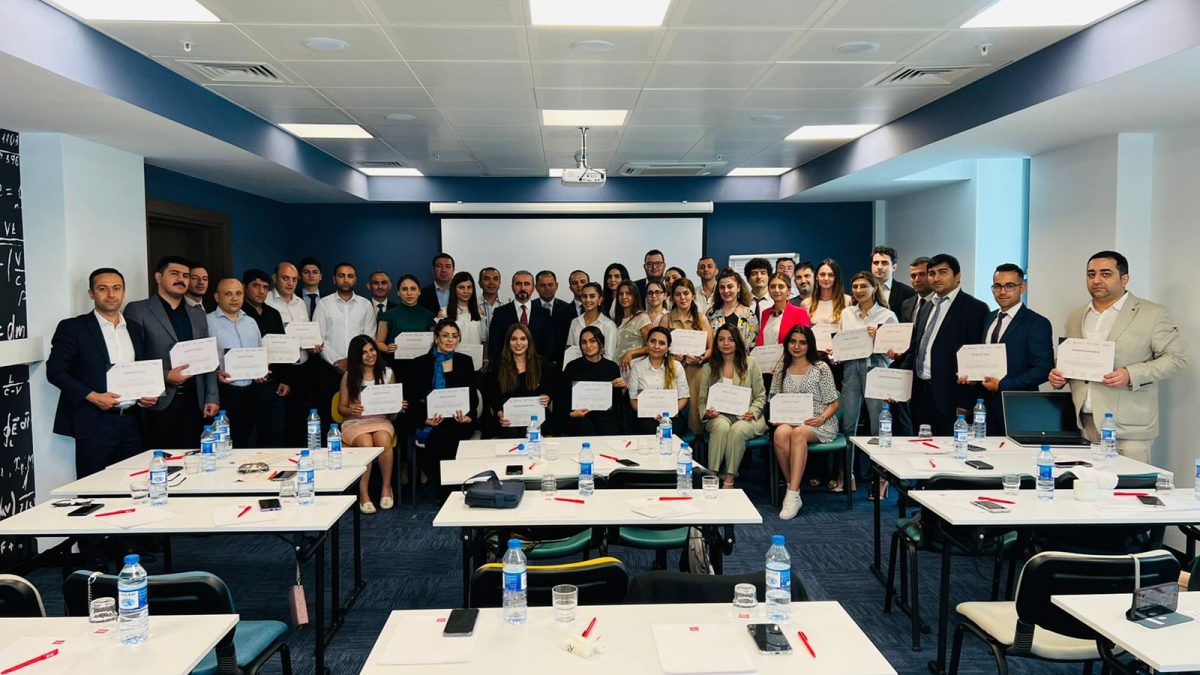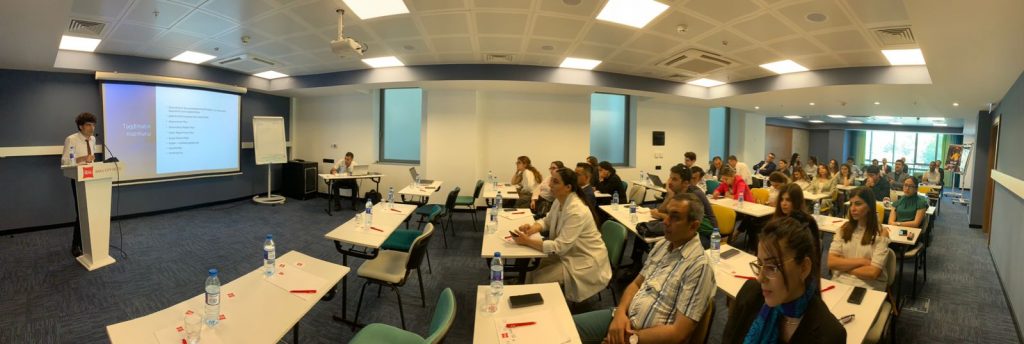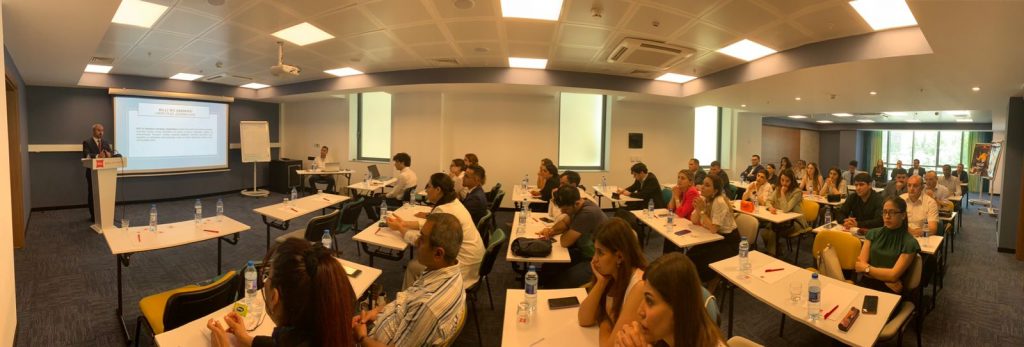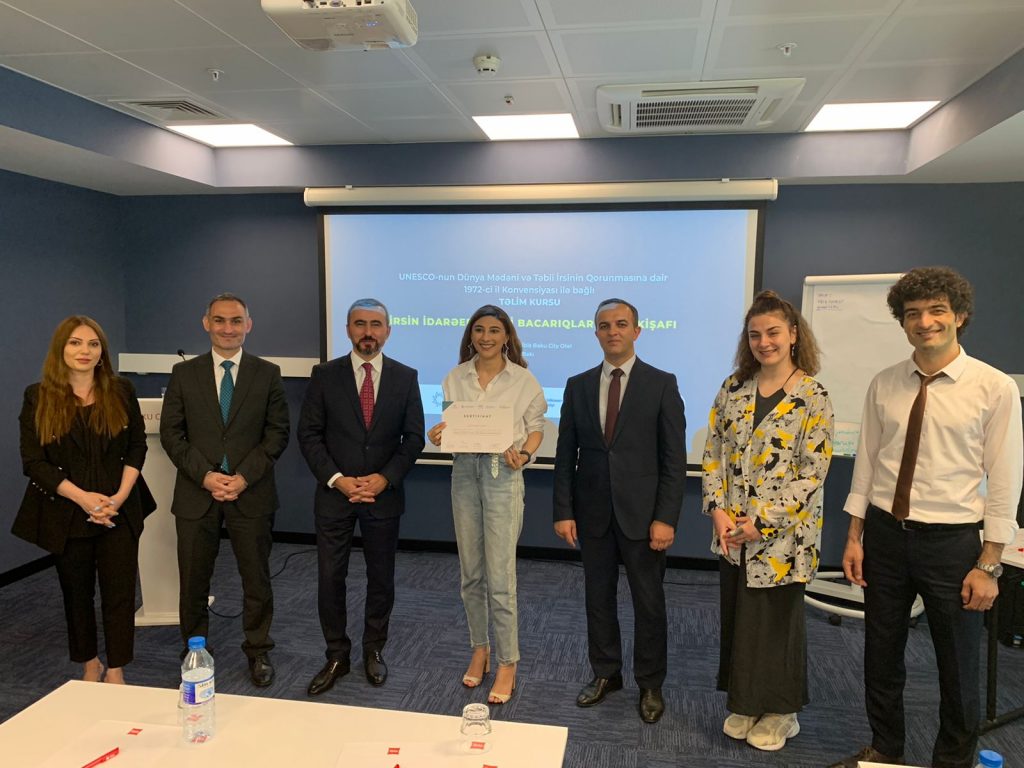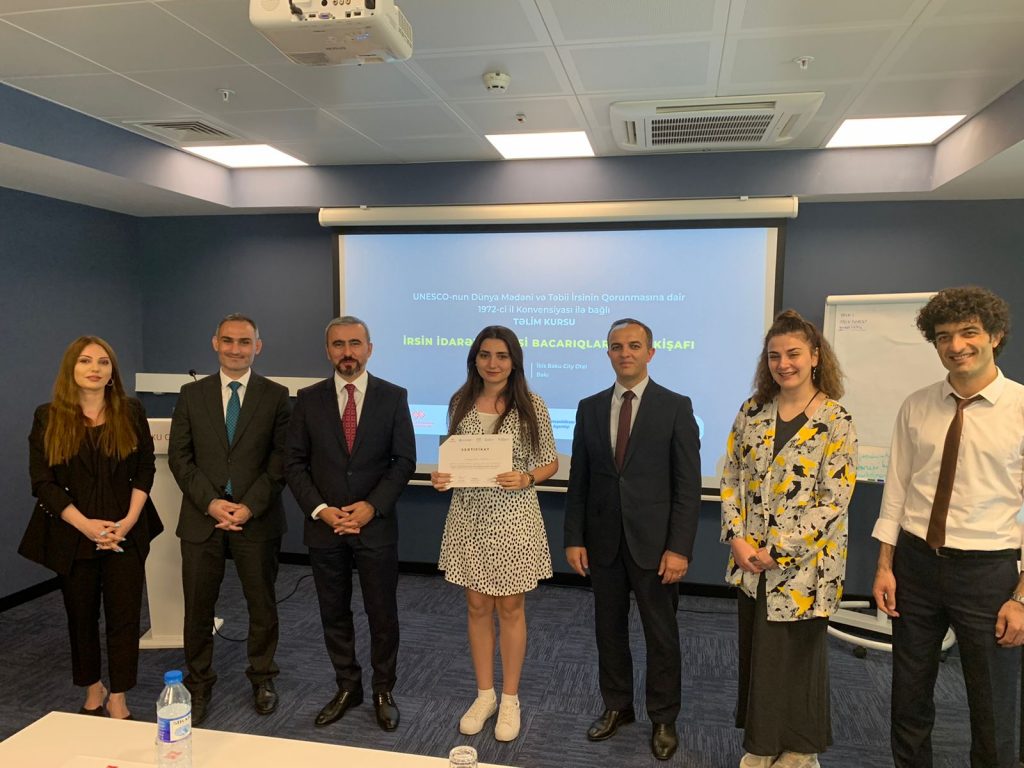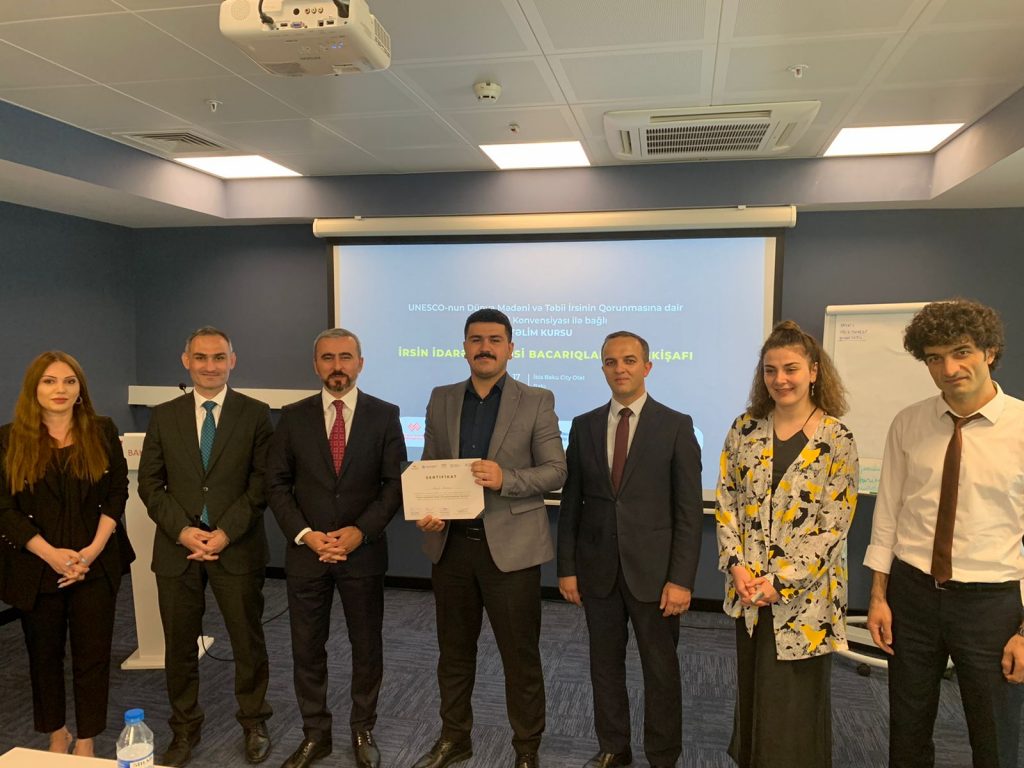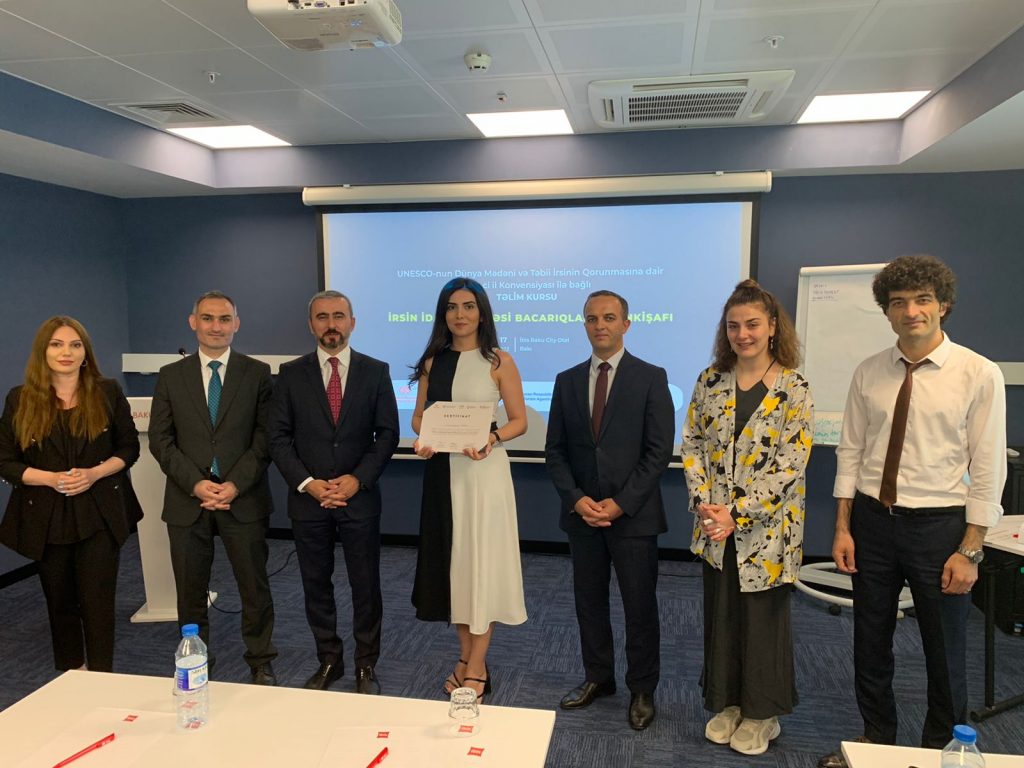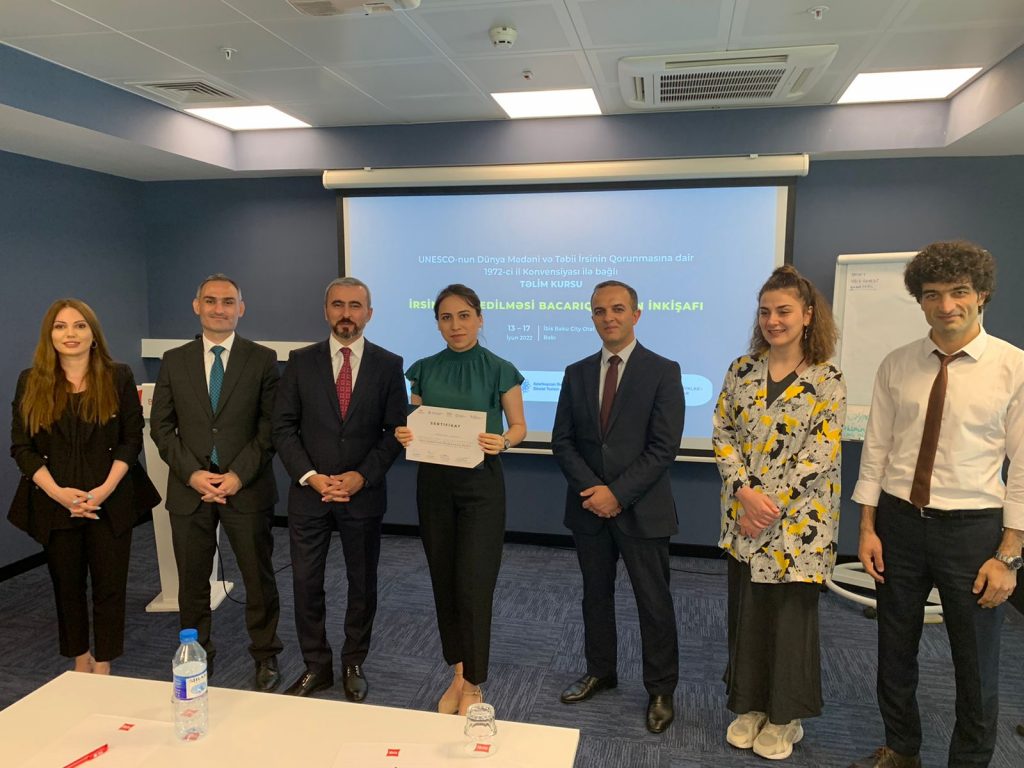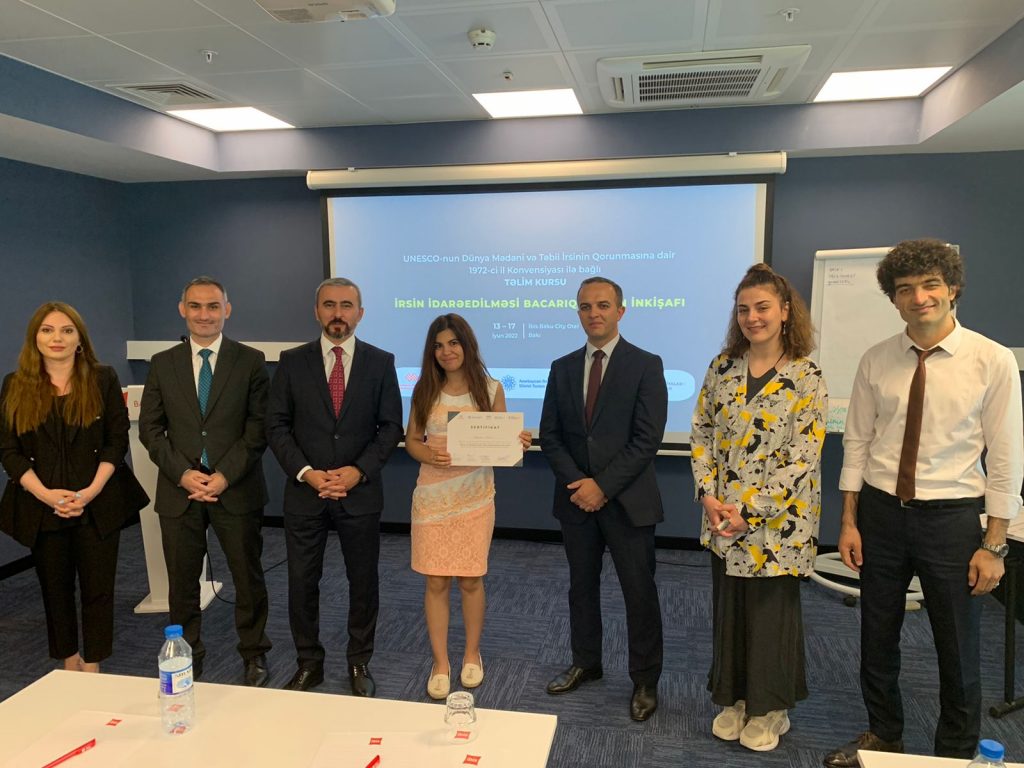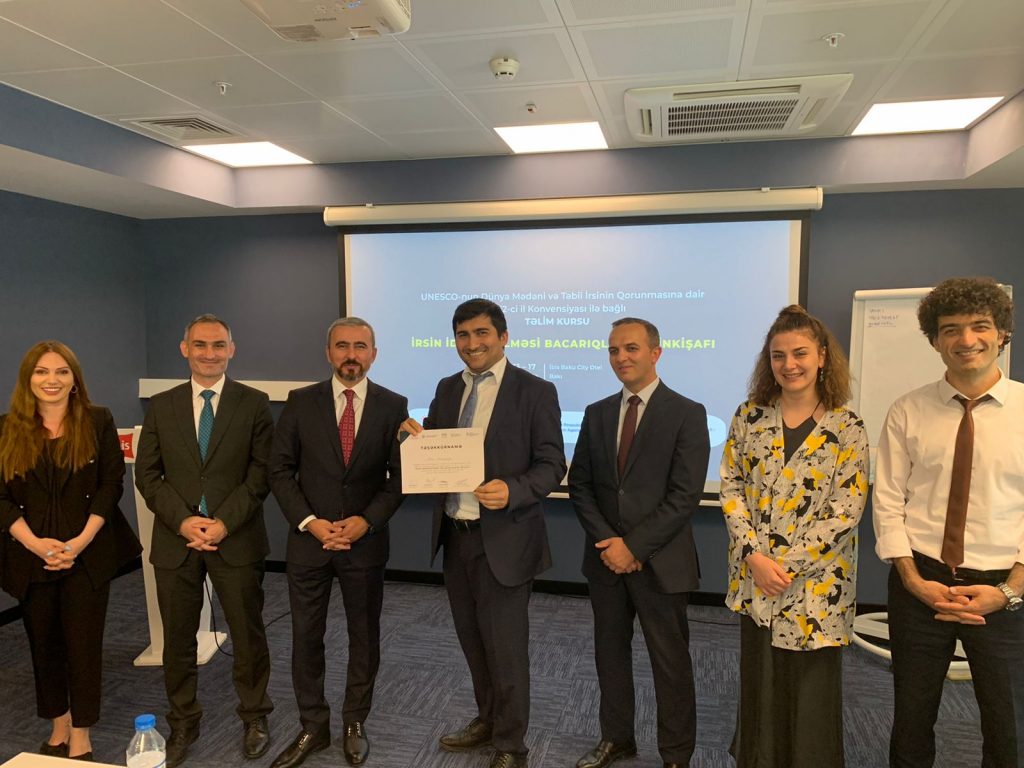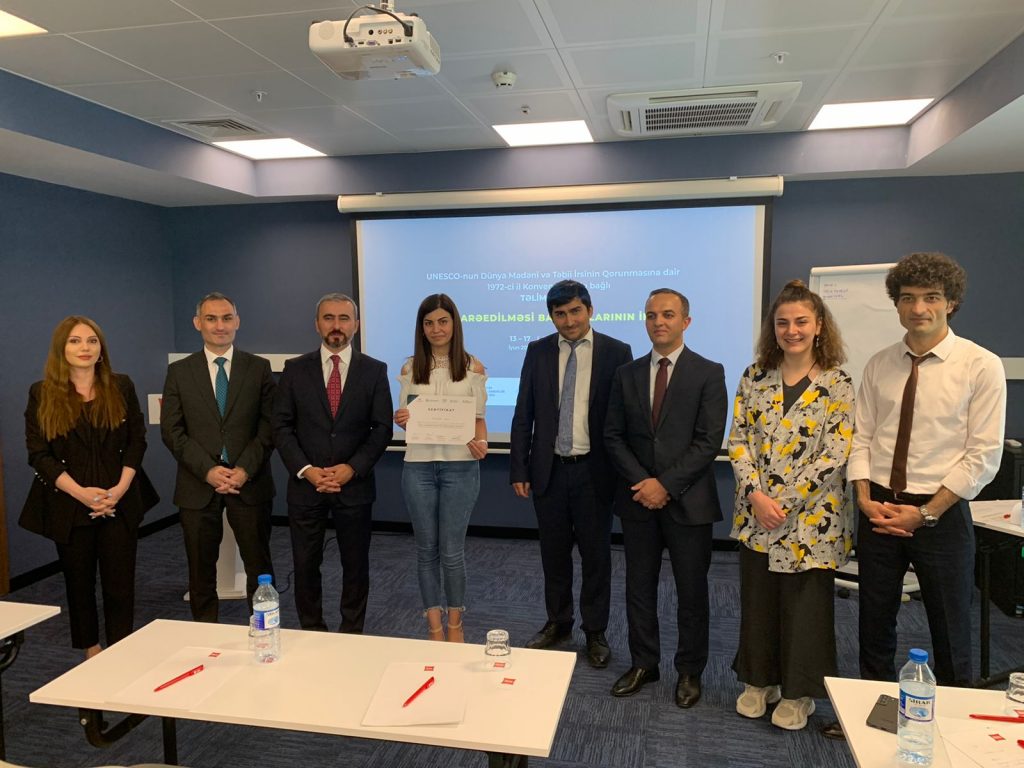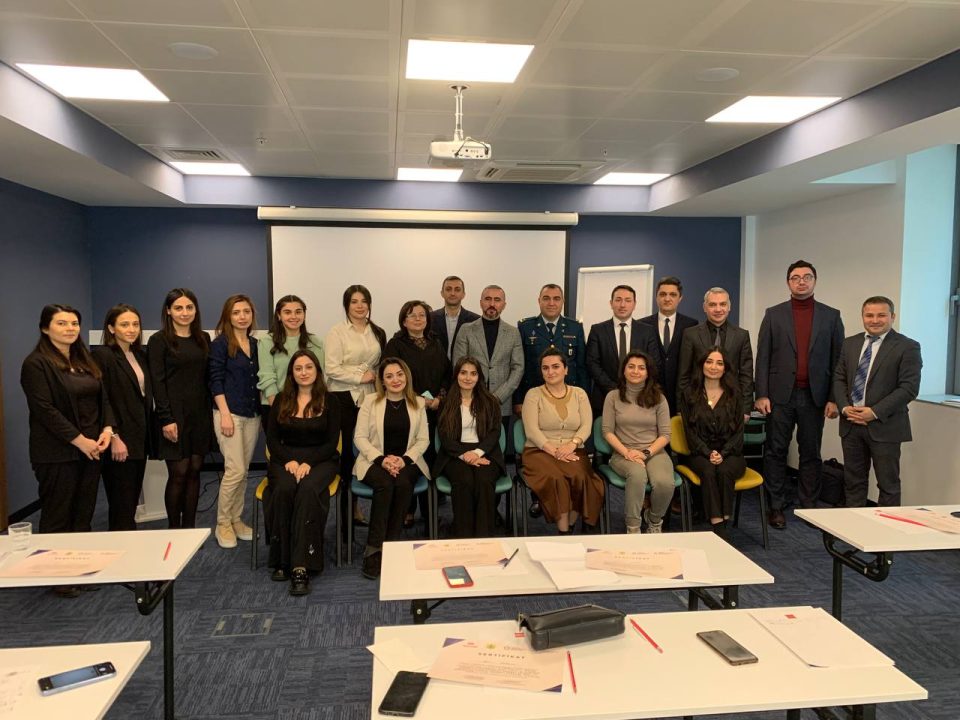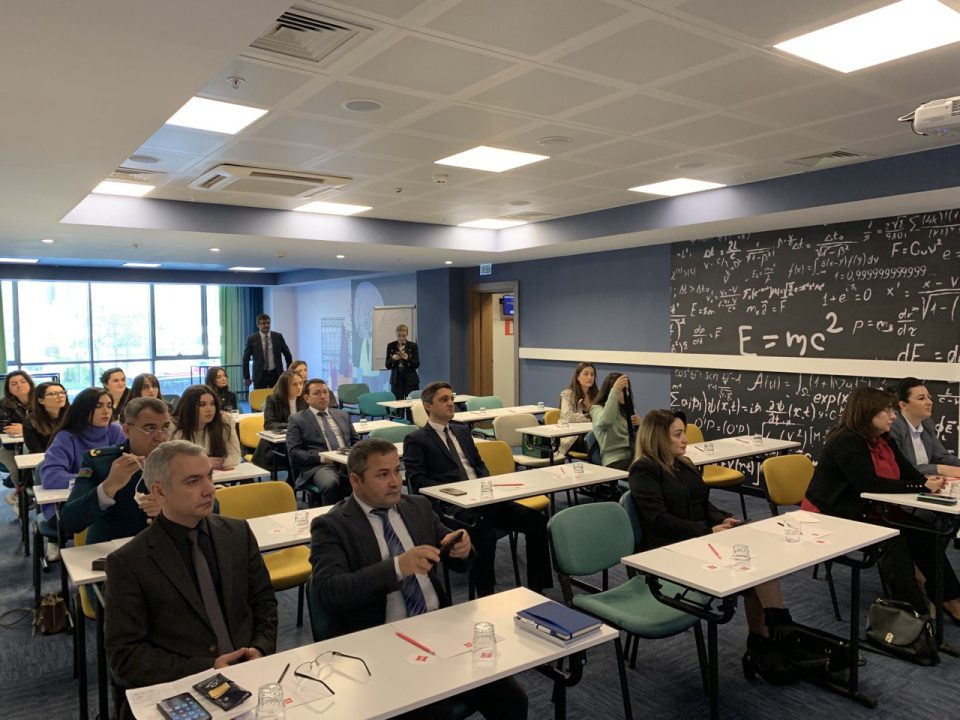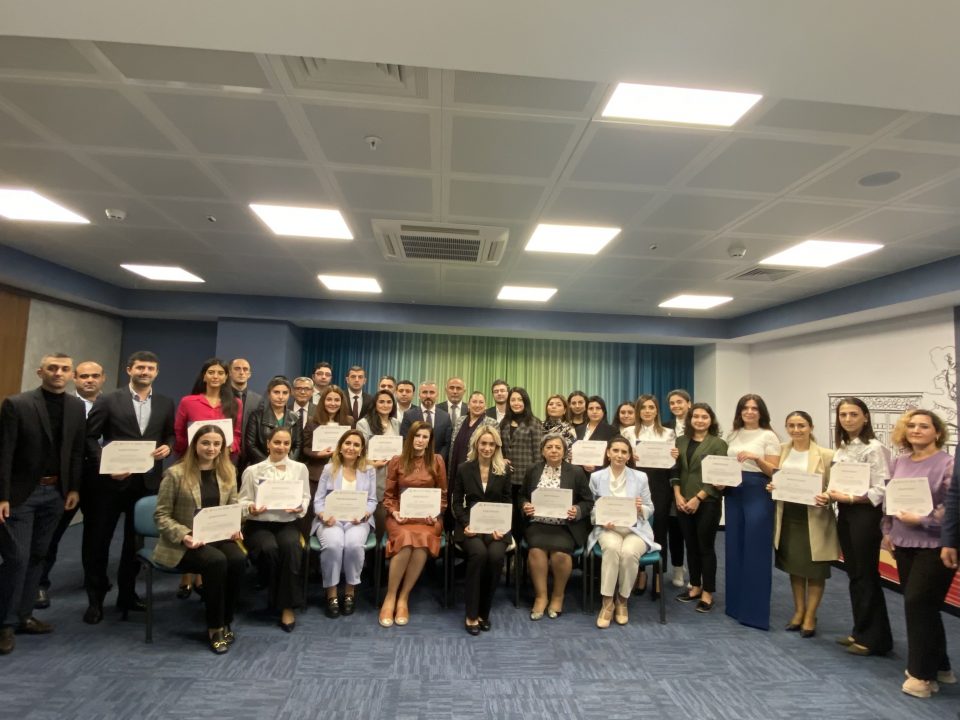Four-day training program on “Heritage Governance Skills Development” completed and the National Heritage Platform (“Heritage Azerbaijan” platform) established

The third day of the training course on the UNESCO “1972 Convention for the Protection of the World Cultural and Natural Heritage” organized
16/06/2022OBYEKTİV – 17.06.2022 I National Marketing Forum
18/06/2022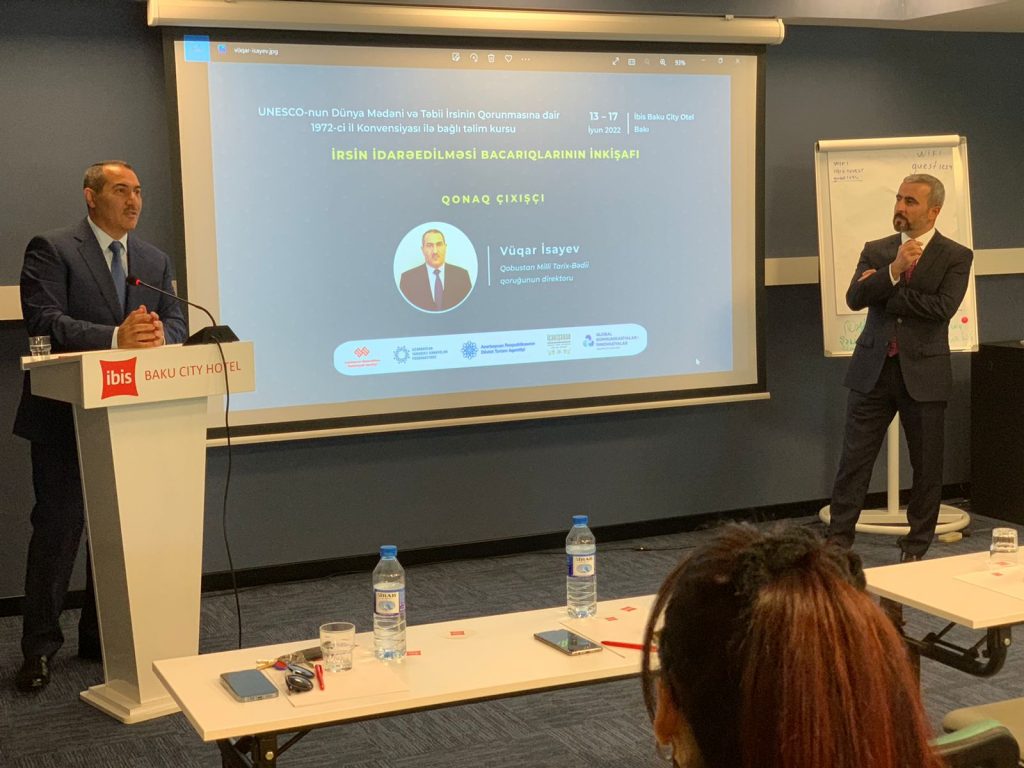 On June 17, the last day of the four-day training program on “Heritage Governance Skills Development” was held within the framework of the 1972 UNESCO Convention on the Protection of the World Cultural and Natural Heritage. The training program is carried out by the order of the Ministry of Culture, the State Tourism Agency, the partnership of the “Icherisheher” State Historical-Architectural Reserve Department and the support of Azerbaijan Creative Industries Federation.
On June 17, the last day of the four-day training program on “Heritage Governance Skills Development” was held within the framework of the 1972 UNESCO Convention on the Protection of the World Cultural and Natural Heritage. The training program is carried out by the order of the Ministry of Culture, the State Tourism Agency, the partnership of the “Icherisheher” State Historical-Architectural Reserve Department and the support of Azerbaijan Creative Industries Federation.Speaking at the event, the head of the training program, the chairman of the board of Azerbaijan Creative Industries Federation, Vasif Eyvazzade said that for four days now, representatives of the leading institutions in the heritage management of our country have come together for the first time in a training program on heritage management and in relation to the Convention on the protection and management of heritage objects, and presentations by guest speakers on best practices, as well as presentations by a special expert on each day. The topics presented in the daily training sessions, the sensitivity of the audience around the issues raised, the numerous questions addressed once again show the importance of new inter-institutional cooperation and exchange of experience against the background of modern challenges in the field of heritage management.
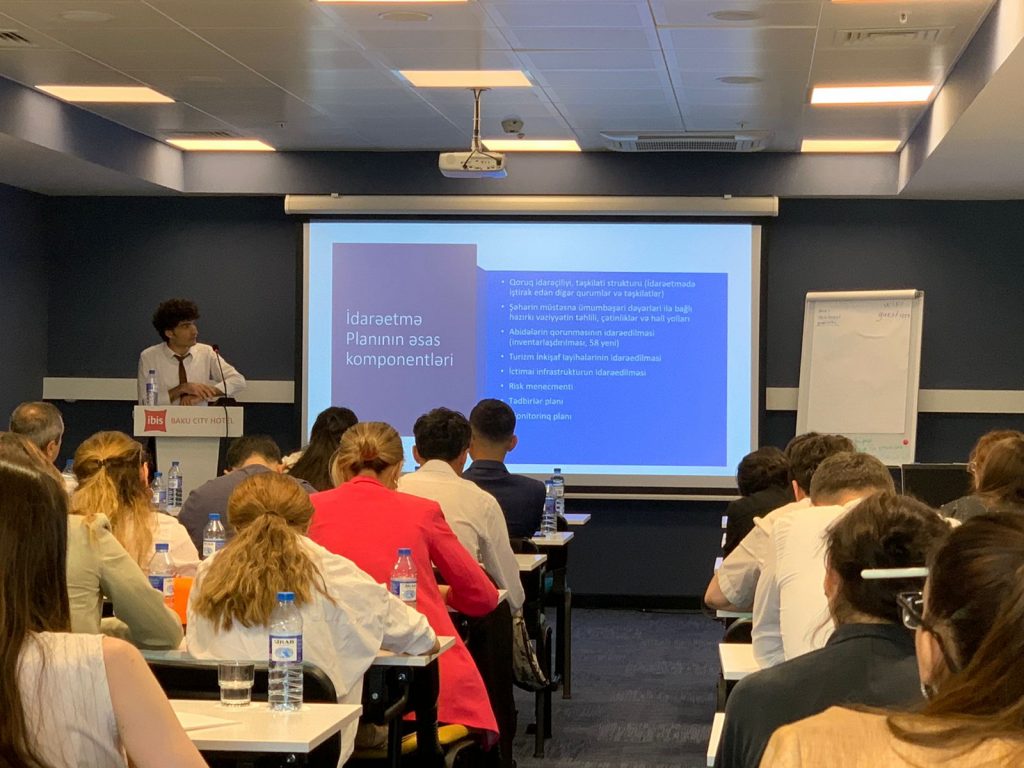 On the fourth day of the training, the director of the Gobustan National Historical-Artistic Reserve, Vugar Isayev, who participated as a guest speaker, expressed his appreciation for this training project and expressed his appreciation for the protection of the reserve area of the Gobustan reserve, which is included in the World Heritage sites list, the scientific research and archeology works carried out in the area, and the work carried out by the reserve, and gave information about the public awareness raising works. He also shared the reserve’s experiences in the field of international cooperation, exchange of experience and organization of exhibitions, and answered questions about the effects of climate effects on the rocks protected as open-air museums, restoration and conservation practices.
On the fourth day of the training, the director of the Gobustan National Historical-Artistic Reserve, Vugar Isayev, who participated as a guest speaker, expressed his appreciation for this training project and expressed his appreciation for the protection of the reserve area of the Gobustan reserve, which is included in the World Heritage sites list, the scientific research and archeology works carried out in the area, and the work carried out by the reserve, and gave information about the public awareness raising works. He also shared the reserve’s experiences in the field of international cooperation, exchange of experience and organization of exhibitions, and answered questions about the effects of climate effects on the rocks protected as open-air museums, restoration and conservation practices.After the opening speeches, the trainer of the last training day, the senior specialist of the project management department of the Reserves Management Center of the State Tourism Agency, Elchin Karimov, an expert on cultural tourism, spoke about the management experience of the Upper Bash State Historical-Architectural Reserve as the historical center of the city of Sheki as a World Heritage Site, management, conservation, urban regeneration plans and made a presentation on the stages of preparation and operation of risk management plans, restoration guidelines, and in his presentation, he also talked about the possibilities of national heritage samples, crafts and traditions and the surrounding forest cover as auxiliary attributes of the world heritage site and their protection measures. By using interactive methods in the training process, the participants had the opportunity to open a discussion about specific cases, to ask questions about dark points in the training process, and the questions were answered by the trainer.
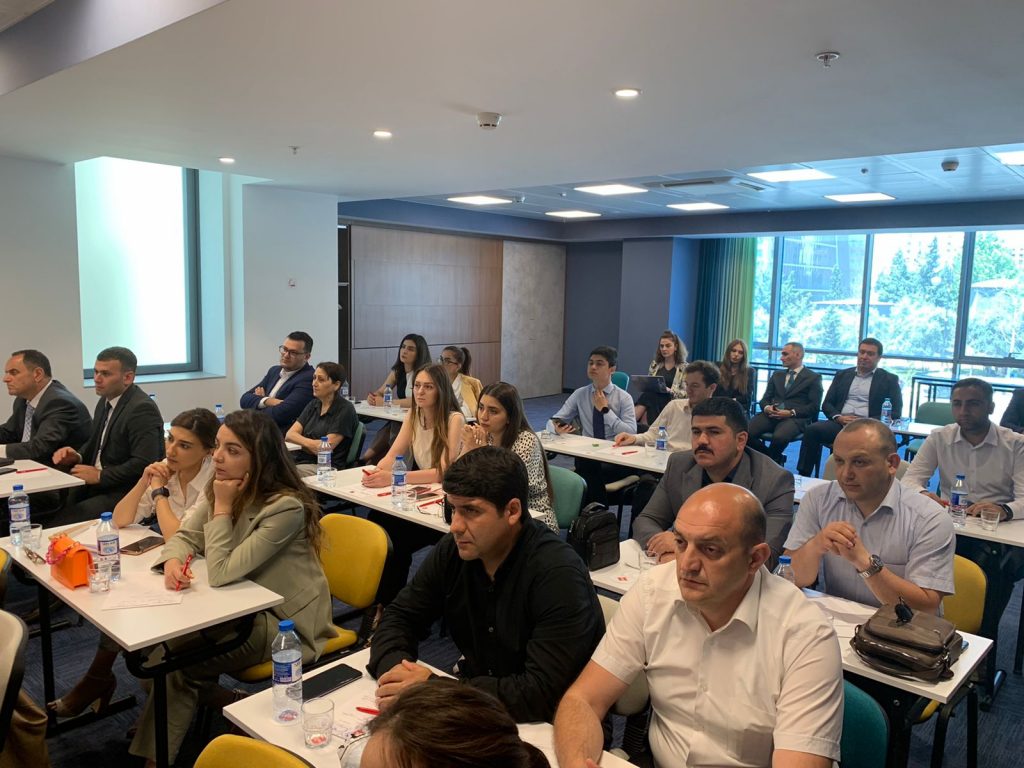 After the training session, Vasif Eyvazzade, head of the training program, Chairman of Board of Azerbaijan Creative Industries Federation, taking into account the issues raised by the participants during the training days, the questions and difficulties in the field of heritage protection and management in our country, as well as the sensitivity and high motivation of the participants of the training program to field issues. stated the need for creation of a public platform. Presenting the idea of the National Heritage Platform (“Heritage Azerbaijan” platform), V. Eyvazzade in his proposal stated that the goal of this public platform is to stimulate inter-institutional cooperation and exchange of experience against the background of modern challenges in the field of cultural heritage, to implement public campaigns to increase awareness, and to increase knowledge and skills, emphasized that goals such as promotion of public-private, public-community, private-community cooperation, development of community culture in the protection, restoration and development of cultural heritage may be relevant.
After the training session, Vasif Eyvazzade, head of the training program, Chairman of Board of Azerbaijan Creative Industries Federation, taking into account the issues raised by the participants during the training days, the questions and difficulties in the field of heritage protection and management in our country, as well as the sensitivity and high motivation of the participants of the training program to field issues. stated the need for creation of a public platform. Presenting the idea of the National Heritage Platform (“Heritage Azerbaijan” platform), V. Eyvazzade in his proposal stated that the goal of this public platform is to stimulate inter-institutional cooperation and exchange of experience against the background of modern challenges in the field of cultural heritage, to implement public campaigns to increase awareness, and to increase knowledge and skills, emphasized that goals such as promotion of public-private, public-community, private-community cooperation, development of community culture in the protection, restoration and development of cultural heritage may be relevant.At the end, the training participants were awarded with a certificate for successfully completing the training course. Also, letters of thanks were presented to the expert trainers and organizers of the training program.

